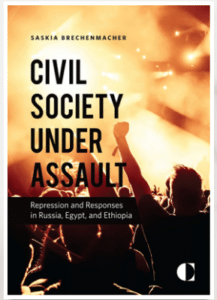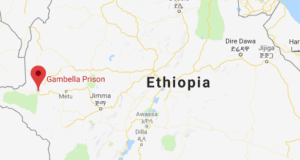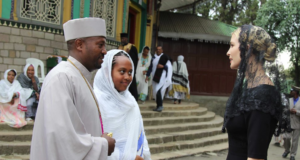ESAT News (May 19, 2017)
The closing of civic space has become a defining feature of political life in an ever-increasing number of countries, Ethiopia being at the forefront, the Carnegie Endowment for International Peace said in a newly released report.
“Civil society organizations worldwide are facing systematic efforts to reduce their legitimacy and effectiveness. Russia, Egypt, and Ethiopia have been at the forefront of this global trend. In all three countries, governments’ sweeping assault on associational life has forced civic groups to reorient their activities, seek out new funding sources, and move toward more resilient organizational models,” according the report authored by Saskia Brechenmacher, Associate Fellow for Democracy and Rule of Law Program.
The report said governments in Russia, Egypt, and Ethiopia have used a wide range of tactics to restrict civil society including public vilification, sweeping legal measures and civil society co-optation.
In Ethiopia, the report said, “authorities have pushed NGOs from rights-based efforts to service delivery activities and imposed onerous funding limitations. Targeted repression in the name of counterterrorism has further stifled civic activism, and the government is increasingly relying on emergency powers to suppress growing rural dissent.”
 The Ethiopian Satellite Television and Radio (ESAT) No. 1 Ethiopian news media: Esat, Ethiopian news, daily Ethiopian news, ESAT tv, ESAT Radio, Ethiopia
The Ethiopian Satellite Television and Radio (ESAT) No. 1 Ethiopian news media: Esat, Ethiopian news, daily Ethiopian news, ESAT tv, ESAT Radio, Ethiopia





